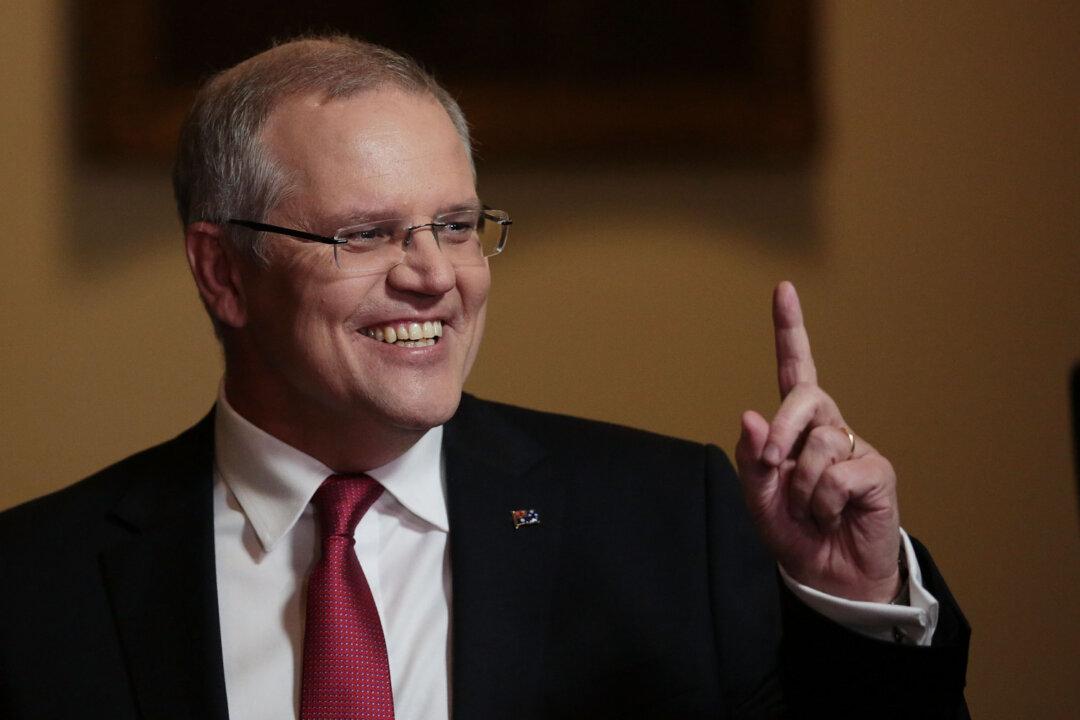Australian Prime Minister Scott Morrison has been re-elected to continue on with the job in a general election on May 18 that has been described by the press for left-leaning populists as another a “shock” election victory.
The 51-year-old received a congratulatory phone call from U.S. President Donald Trump early on Sunday, May 19. Trump called the result a “great win!”





